The CGIAR Research Program on Water, Land and Ecosystems (WLE) and partners will be attending the 6th Annual ESP Conference: Making Ecosystem Services Count in Bali, Indonesia 26-30 August 2013.
The conference is organized by the Ecosystem Services Partnership (ESP) and convened by the World Agroforestry Centre (ICRAF) and CGIAR Research Program: Forests, Trees and Agroforestry.
While agricultural development has progressed in leaps and bounds to feed the global population, it has not come without environmental and production costs. These environmental costs have limited the ecosystem services on which we depend, including agricultural production as well as access to clean water, protection from natural disasters and fertile soils.
Ecosystem services and resilience is a cross-cutting theme of WLE. The theme focuses on ecosystem service-based approaches which aim to move beyond agriculture that ‘does no harm’, to an integrated approach that boosts agricultural production concurrently with other benefits such as soil and water quality, biological conservation, and increased resilience of rural communities.
Read more about WLE's Ecosystem Services and Resilience Framework 7 Principles:
On the blog:
During the month surrounding the ESP conference, the Agriculture and Ecosystems Blog will be highlighting ecosystem services blog posts. Start off by reading the introductory blog on the Ecosystem Services and Resilience Framework. A post summarizing all posts featured during Ecosystems month can be viewed here.
We want to hear from you. Comment on the blog and let us know what you think of the ESS+R Framework. Share your experiences.
Week 1
A Month of Ecosystems by Fabrice DeClerck, Alexander Fremier and Louise Willemen
WLE is celebrating the launch of its Ecosystem Services and Resilience (ESSR) Framework with a month-long focus on WLE's AgEco blog. Read more about the ESSR Framework here.
Ladybeetles: Cotton's secret ingredient by Wei Zhang and Mark Rosegrant
A recent study by IFPRI finds certain crop land use has the potential to control cotton pests by fostering habitats for natural pest enemies such as the ladybeetle.
Can Africa overcome the perfect storm? by Carlo Fadda
Africa faces two major challenges in the coming 50 years: the conservation of landscapes along with the biodiversity in them and securing enough food for an ever-increasing population - all under a changing climate that is negatively affecting Africa's agricultural productivity.
Give bees a chance by Barbara Gemmil-Herren and Hien Ngo
Pollination is one of 17 recognized ecosystem services. Over 35% of food produced is dependent on animal pollination. Yet there have been mounting questions about how relevant pollination may be to agricultural development and food security.
Week 2
Ecosystem Services take a central role in disaster risk management by Leonardo Saenz
Gramalote, a town in northeastern Colombia, was buried under a massive mudslide in 2010 triggered by the wettest La Niña event in over a century. The team tasked with determining a new location to rebuild the town makes ecosystem services central.
Can Rewards for Ecosystem Services reduce the wealth inequality gap? by Marcela Quintero and Abby Waldorf
Latin America fosters some of the worst wealth inequality in the world. In response, the Peruvian government is working with CPWF and CIAT to improve the distribution of economic benefits in coastal river basins by harnessing the value of ecosystem services they provide and avoiding potential water-related conflicts.
A bundle of services is key to resilience by Megan Meacham, Camilla Zanzanaini, Abby Waldorf
The role of human wellbeing goes beyond crop production. Bali's traditional rice terrace farming, the subak system, provides a good illustration of the bundle of ecosystem services provided by agricultural landscapes.
A Clash of Civilizations by Camilla Zanzanaini
WIll urbanization make rural landscapes obsolete? More than 60% of the world's area projected to be urban by 2030 is yet to be built. Should WLE be considering an agriculture-conservation-
Week 3
Wastewater reuse: benefits beyond food production
Luca di Mario and Pay Drechsel
Lima is one of the largest cities in the world located in a desert. Wastewater irrigation provides water and important nutrients to Huascar Park, contributing to a number of ecosystem services.
Week 4
Birds return the favor: providing ecosystem services in Costa Rica by Alejandra Martinez-Salinas
One of WLE’s interest has been to better understand how agricultural ecosystems contribute to conserving Costa Rica’s birds; and whether these birds ‘return the favor’ by providing ecosystem services.
Sustainable Aid: local interventions target landscapes to improve livelihoods by Fred Kizito
It is common practice for developing countries to receive donor aid in order to meet existent community demands. Yet there have been many cases where development interventions are not adapted to local contexts.
Not all dams are equal (but some are more equal than other) by Mark Mulligan
The Volta exemplifies a number of tradeoffs in building dams at a range of scales. The WLE Volta Scoping Study that recently took place along a transect from Accra in Ghana to Kaya in Burkina saw many of these tradeoffs in evidence.
Land sharing or sparing? Considering ecosystem services in the debate by Fabrice DeClerck
Which side of the fence (a fence in a well managed field, of course) do you sit on in the land-sparing vs. land-sharing debate? Bridging agriculture and conservation.
Case Studies:
Video:
Can scientists agree on what constitutes ecosystem services and resilience?



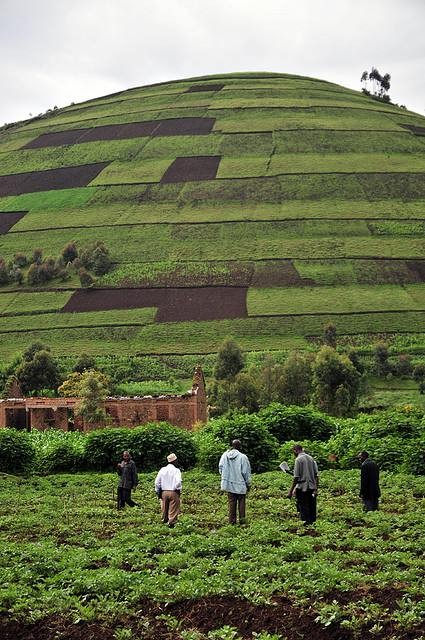
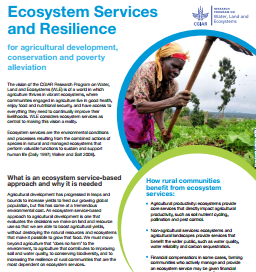
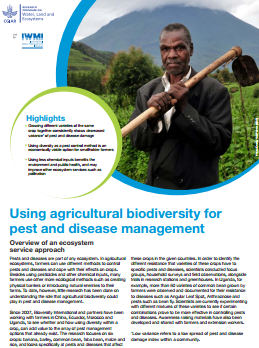
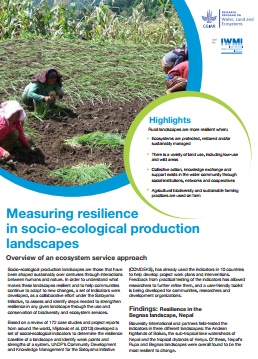
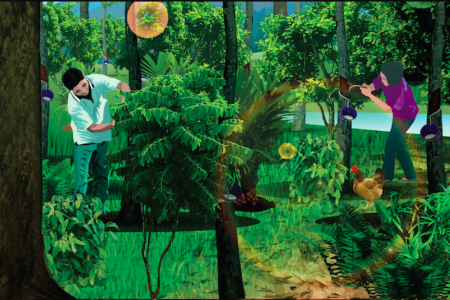

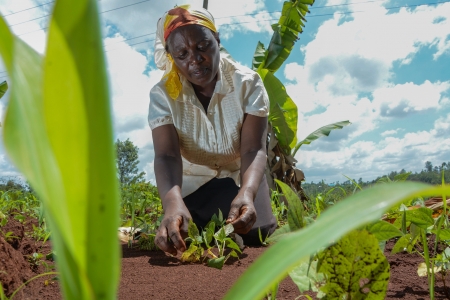





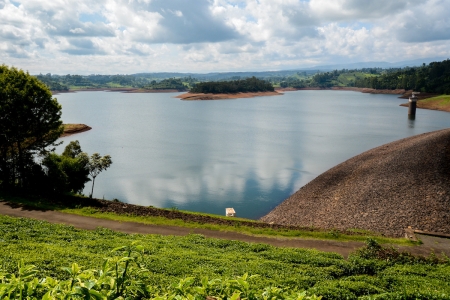
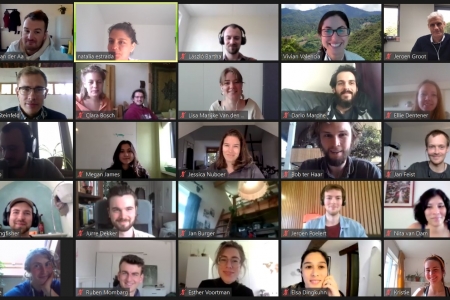



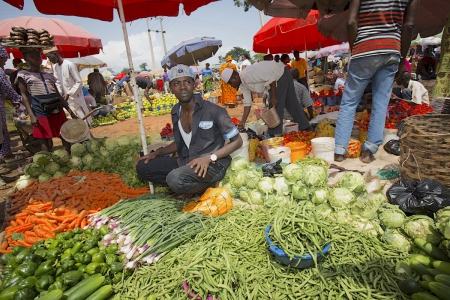

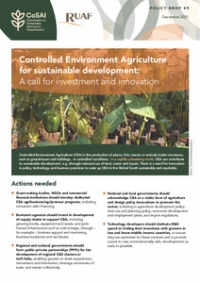
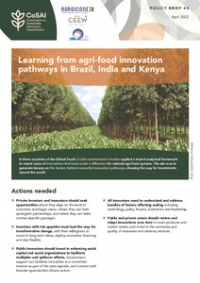
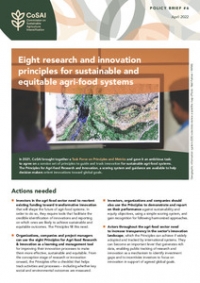
Add new comment